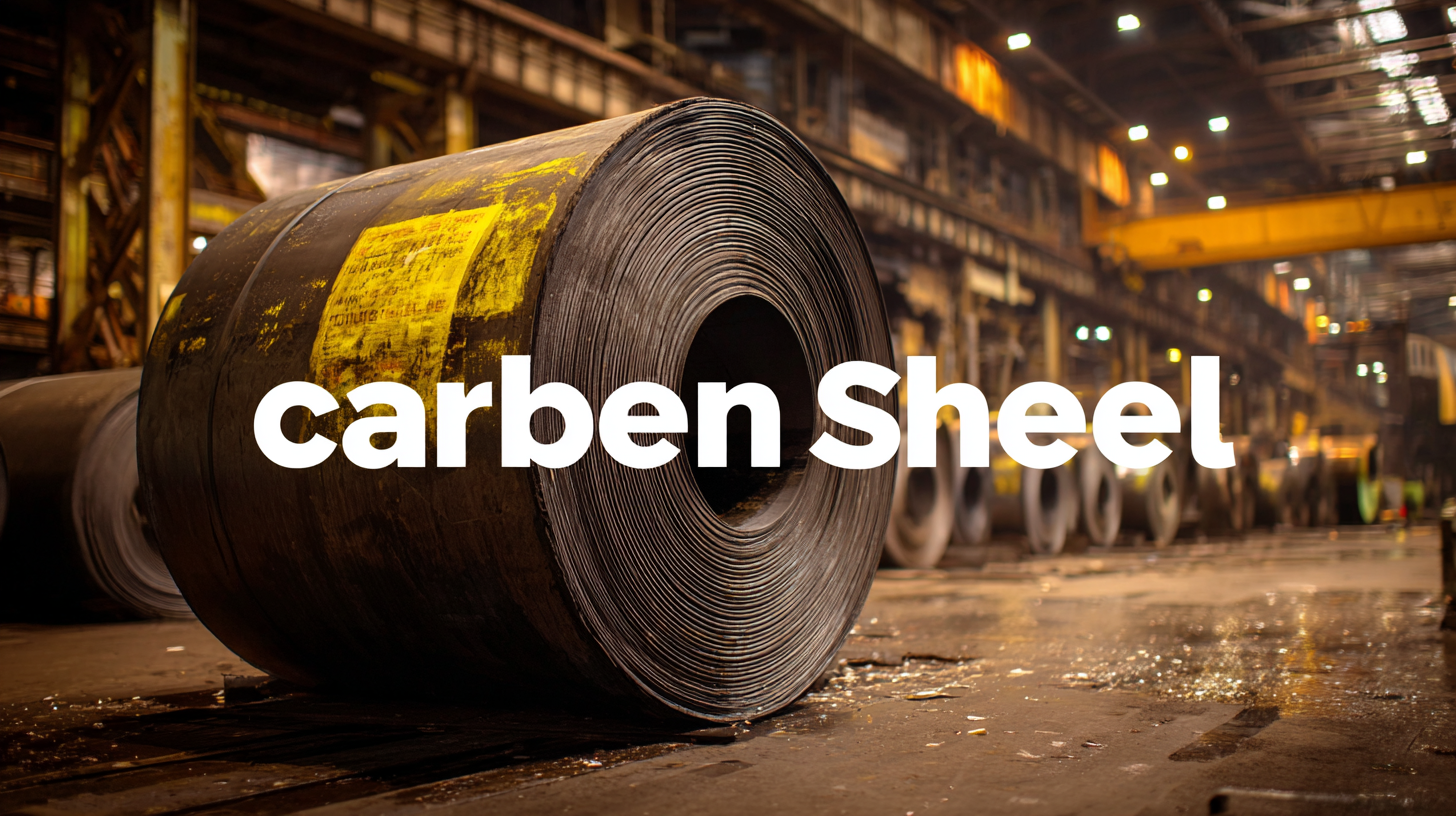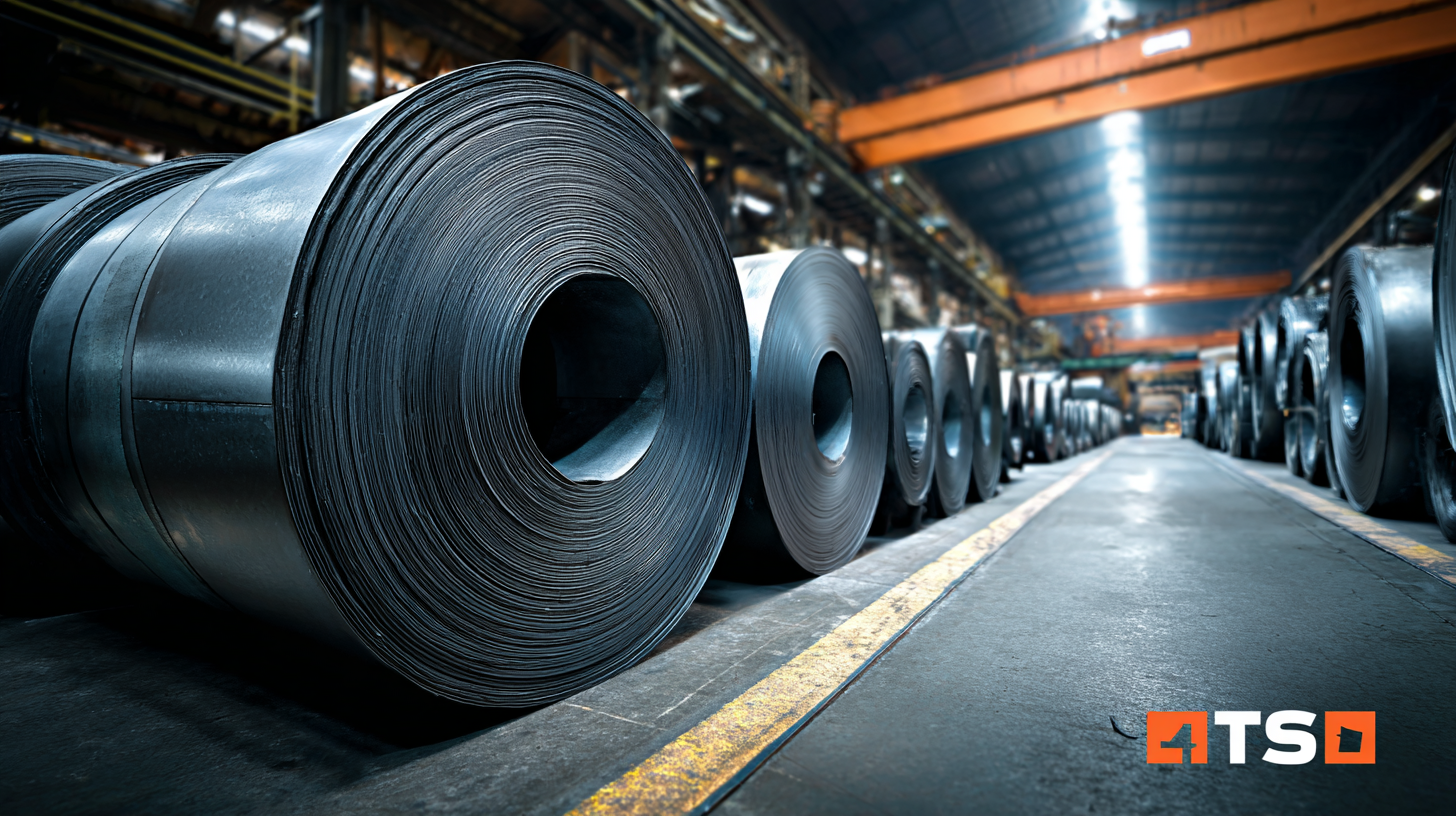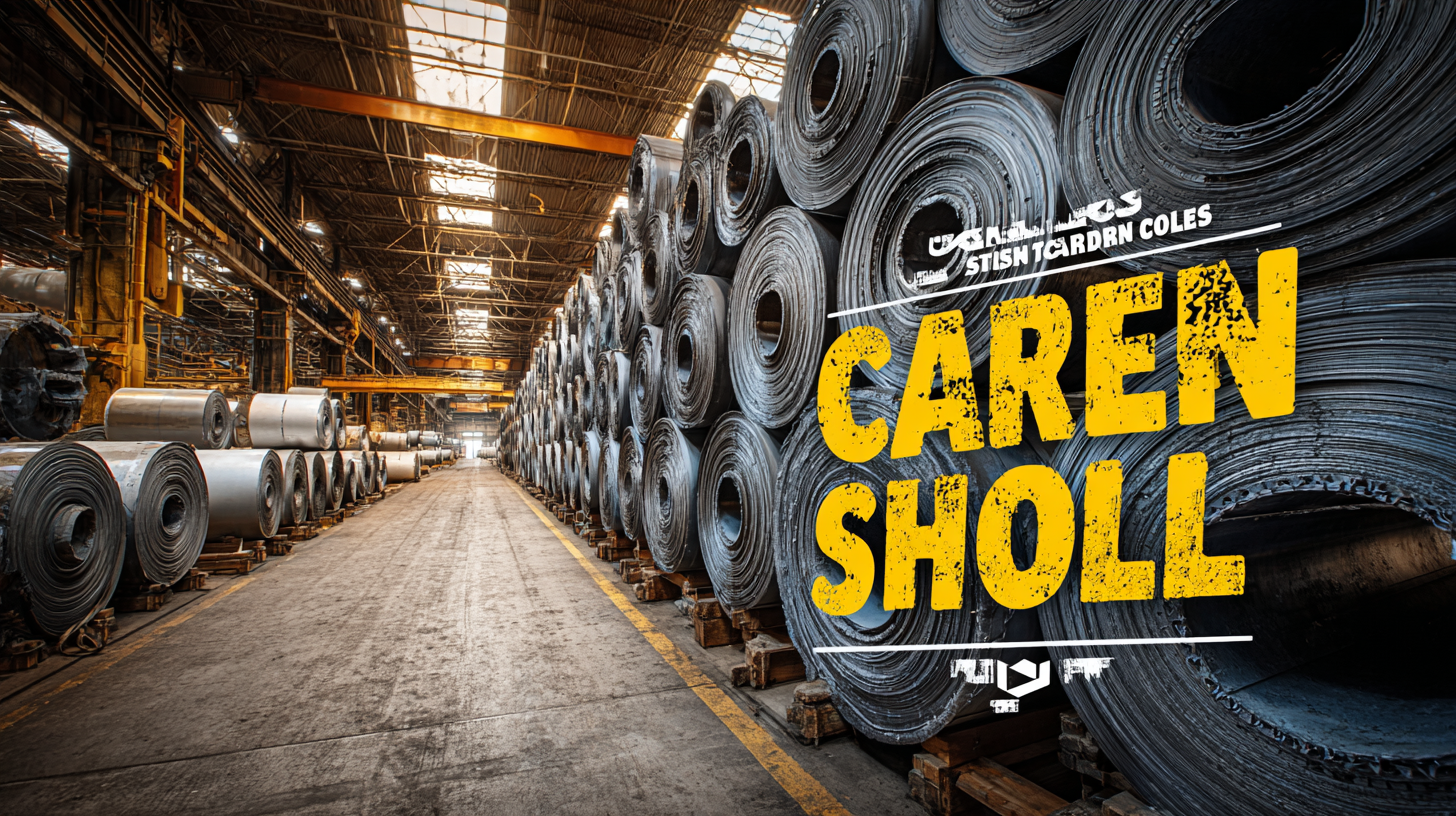In the evolving landscape of metal manufacturing, the demand for high-quality Carbon Steel Sheet Coils continues to rise, driven by innovative applications across various industries. According to a recent report by Markets and Markets, the global carbon steel market is projected to reach $2.5 trillion by 2025, highlighting the integral role of carbon steel products, particularly sheet coils, in construction, automotive, and machinery sectors. However, issues such as corrosion resistance, surface quality, and thickness variation often present challenges for manufacturers and users alike. This blog aims to address these common issues, leveraging insights from industry experts and data from leading organizations to provide effective solutions and explore the technological trends shaping the future of Carbon Steel Sheet Coils.

Understanding the unique properties of carbon steel sheet coils is crucial for manufacturers looking to optimize production processes and enhance product quality. Carbon steel sheet coils are favored in the industry for their exceptional strength, ductility, and versatility. According to a report by the American Iron and Steel Institute, carbon steel accounts for approximately 75% of all steel produced globally, underscoring its dominance in manufacturing applications. The varying carbon content in these coils affects their mechanical properties, making them suitable for diverse uses, from automotive components to infrastructure projects.
Tip: When selecting carbon steel sheet coils, consider the specific carbon content required for your application. Higher carbon content can yield better tensile strength but may reduce ductility, whereas lower carbon content offers improved formability.
Moreover, the surface quality of carbon steel coils directly impacts the final product's performance. Industry data reveals that about 30% of defects in steel products stem from inadequate surface treatment during manufacturing. Therefore, ensuring the proper coating and treatment of carbon steel sheet coils is essential to enhance resistance to corrosion and improve longevity.
Tip: Regularly inspect the surface of the coils before production. Implementing rigorous quality control measures can significantly reduce the likelihood of defects, ensuring a smooth manufacturing process and high-quality outcomes.
| Property | Description | Typical Values | Applications |
|---|---|---|---|
| Tensile Strength | The maximum amount of tensile (stretching) stress that a material can withstand before failure. | 400 - 600 MPa | Construction, automotive parts |
| Yield Strength | The stress at which a material begins to deform permanently. | 250 - 350 MPa | Structural components, frames |
| Elongation | Percentage of stretch before the material breaks, indicating ductility. | 20% - 30% | Metal forming processes |
| Hardness | Resistance of the material to deformation or scratching. | Rockwell B Scale (HRB) 70 - 90 | Manufacturing tools, machinery parts |
| Corrosion Resistance | Ability to withstand corrosion in varying environments. | Moderate | Outdoor structures, pipes |
Handling and processing carbon steel sheet coils comes with its share of challenges that can impact efficiency and product quality. One of the most common issues is the susceptibility of these coils to deformation during storage and transportation. Improper stacking methods can lead to warping and surface damage, making it difficult to achieve the desired tolerances in the final application. According to industry reports, up to 30% of carbon steel coils experience some form of deformation, which can result in increased reworking costs and production delays.
Another significant challenge involves the thermal treatment processes necessary to enhance the formability and bendability of cold-rolled steel coils. The data suggests that optimally heat-treated coils show a 20-25% improvement in their forming capabilities compared to untreated coils. Without proper heat treatment, manufacturers may face difficulties with material stretch and tearing during fabrication. This underscores the importance of not only selecting high-quality steel but also implementing effective handling and processing techniques to minimize these common issues. By addressing these challenges, the industry can reduce waste and improve overall efficiency.
Maintaining quality in carbon steel sheet coil production is crucial for meeting industry standards and ensuring customer satisfaction. One of the key practices involves adopting advanced technologies such as Cold Metal Transfer (CMT), which has shown significant advantages over traditional welding methods. CMT technology optimizes the welding process, leading to better joint quality and increased efficiency, thus reducing waste and improving overall production quality.
Tip: Regularly train your workforce on the latest CMT advancements, as understanding the technology's principles and mechanisms can enhance the consistency and quality of welds in carbon steel production.
Another best practice is the implementation of proper thermal treatment processes for cold-rolled steel coils. This step not only prepares the material for forming and bending but also enhances its mechanical properties, ensuring that the final product meets specific requirements for strength and ductility. Continuous research into these processes allows manufacturers to refine their techniques, resulting in higher quality outputs.
Tip: Monitor and evaluate the thermal treatment process regularly to ensure optimal conditions are maintained, which will lead to improved product quality and reduced defects in carbon steel sheet coils.
Innovative solutions for improving the durability of carbon steel sheet coils are becoming increasingly important in various industries. As carbon steel is widely used due to its strength and versatility, addressing its common issues, such as corrosion and wear, is essential for enhancing its longevity. Advanced coating technologies have emerged as a vital component in mitigating these challenges. For instance, applying zinc-based coatings not only provides a protective layer against environmental factors but also improves the overall lifespan of the steel coils.
Furthermore, the integration of alloying elements can significantly enhance the durability of carbon steel sheet coils. Materials such as chromium and molybdenum can be added to improve resistance to oxidation and high-temperature degradation. Recent advancements in heat treatment processes also play a crucial role, allowing for a refined microstructure that contributes to superior mechanical properties. By embracing these innovative solutions, manufacturers can ensure their carbon steel sheet coils offer not only enhanced durability but also a more sustainable option for various applications.

The carbon steel sheet coils industry is experiencing a significant transformation, driven by evolving market demands and technological advancements. As manufacturers strive for improved sustainability, there is a marked trend towards producing more eco-friendly options, such as low-carbon and recyclable steel sheets. Industry players are investing in innovative processes and materials that minimize environmental impact while maintaining performance and durability. This shift not only meets regulatory requirements but also aligns with the growing consumer preference for sustainable products.

Moreover, advancements in automation and artificial intelligence are paving the way for enhanced production efficiency and quality control. These technologies enable real-time monitoring and adjustments during manufacturing, resulting in reduced waste and improved consistency in the final product.
Furthermore, the industry is witnessing a rise in custom applications, where carbon steel sheet coils are tailored to meet specific customer needs across various sectors, including automotive, construction, and appliances. This focus on adaptability and precision is expected to drive the industry forward in the coming years, positioning carbon steel sheet coils as a vital component in various applications.





